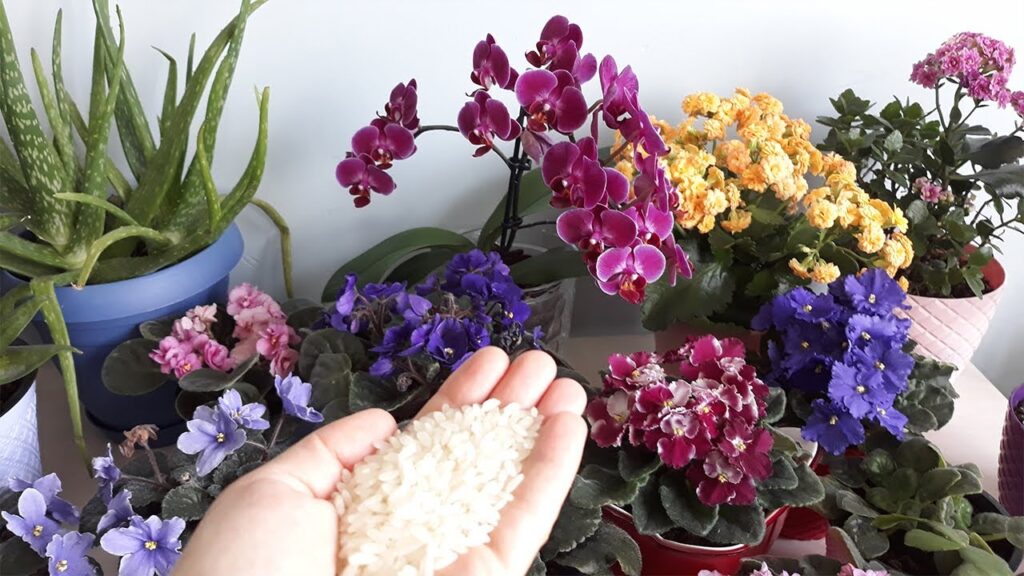Rice Grains Unleashed: Supercharge Your Plants with Natural Strength and Vitality

Rice Grains Unleashed: Supercharge Your Plants with Natural Strength and Vitality” is a hypothetical book or article title that could explore the potential benefits of using rice grains or rice water as a natural plant fertilizer. While there is some traditional knowledge and anecdotal evidence supporting the use of rice water as a plant nutrient, it’s essential to understand that it may not be a comprehensive or scientifically proven solution for all plants or situations.
Rice water is the starchy water leftover after washing rice. It contains some nutrients like vitamins, minerals, and amino acids that may be beneficial to plants. The concept of using rice water as a natural fertilizer is based on the idea that it can provide plants with a mild source of nutrients to boost growth and vitality.

Here are some general guidelines for using rice water as a plant fertilizer:
1. Collecting Rice Water:
After rinsing rice, collect the starchy water used for washing. Avoid using rice water that has added salt, oil, or any other seasonings.
2. Dilution:
Rice water is relatively mild, so it’s essential to dilute it before using it as a fertilizer. Mix one part rice water with two or three parts of plain water to create a diluted solution.
3. Application:
Use the diluted rice water to water your plants as you would with any other liquid fertilizer. Apply it to the soil around the base of the plants, avoiding contact with the leaves.

4. Frequency:
Depending on your plant’s needs, you can use rice water as a supplement to your regular fertilization routine. Applying it every few weeks during the growing season might be suitable for some plants.
5. Observation:
Observe how your plants respond to the rice water. Not all plants may benefit from it, and some may be more sensitive to its components. If you notice any adverse effects, discontinue its use.
While using rice water as a natural fertilizer may offer some benefits, it’s important to note that it should not be the sole source of nutrients for your plants. Plants require a balanced and complete diet of essential elements for optimal growth. Commercially available fertilizers or organic alternatives provide a well-balanced mix of nutrients tailored to the specific needs of different plants.

Additionally, soil health and proper watering practices play significant roles in the overall health and vitality of plants. Regularly amending the soil with organic matter, using compost, and ensuring proper drainage are equally crucial factors in fostering healthy plants.
If you’re interested in exploring natural fertilizers for your plants, experimenting with rice water can be a fun and educational experience. However, for long-term and reliable plant care, it’s best to follow established and balanced fertilization practices based on the specific needs of your plants. Consulting with a local horticulturist or gardening expert can also provide valuable insights and recommendations tailored to your gardening goals.
